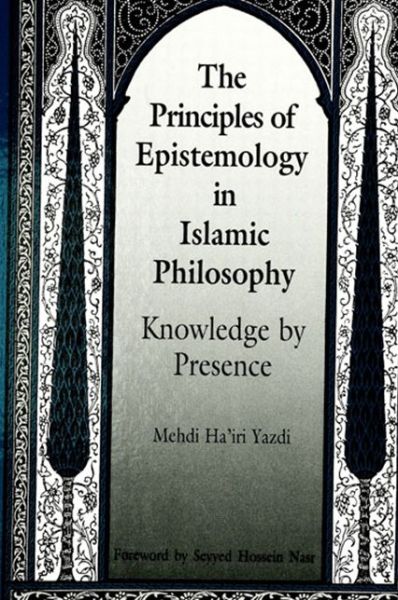The Principles of Epistemology in Islamic Philosophy: Knowledge by Presence download
Par miller marian le jeudi, mars 30 2017, 06:38 - Lien permanent
The Principles of Epistemology in Islamic Philosophy: Knowledge by Presence. Mehdi Ha'iri Yazdi, Seyyed Hossein Nasr

The.Principles.of.Epistemology.in.Islamic.Philosophy.Knowledge.by.Presence.pdf
ISBN: 9780791409480 | 248 pages | 7 Mb

The Principles of Epistemology in Islamic Philosophy: Knowledge by Presence Mehdi Ha'iri Yazdi, Seyyed Hossein Nasr
Publisher: State University of New York Press
Diehard secularists such as today's “New Atheists,” at the same time as they mock faith in general, often place faith in the scientific enterprise as the ultimate source of all possible knowledge. Consider this quote from Those who vehemently denounce faith ignore its presence across the entire spectrum of human existence. Jun 26, 2009 - And it should be said that not a few Muslims may possess a less than sophisticated knowledge of Sharī'ah and fiqh as well, as contemporary Muslim scholars have made plain. Aug 9, 2012 - Because this usage implies that faith is defined by creed, it suggests that faith merely consists of assenting to a Muslim set of beliefs or a Christian set of beliefs. May 5, 2014 - One of them was the Principle of Excluded Middle (PEM), which says that every claim must be either true or false with no other options (the Latin name for this rule, tertium non datur, means literally 'a third is not given'). Jul 2, 2013 - To act on a particular piece of information – knowing that future knowledge may contradict it – requires faith of some caliber. Mar 30, 2012 - “The impact of the specifically Illuminationist theory of knowledge, generally known as 'knowledge by presence' (al-'ilm al-hudūrī), has not been confined to philosophical and other specialist circles, as Illuminationist logic has been, for example. It continued by force of inertia until relatively recently, but I would say that since the 1970s there has been enough cross-cultural knowledge to render it highly obsolete. That's an ontological claim with no epistemological backing. (1992) The Principles of Epistemology in Islamic Philosophy: Knowledge by Presence, Albany, NY: State University of New York Press. Dec 2, 2013 - According to Orstein Hunkins, philosophy is an important foundation of curriculum because the philosophy advocated or reflected by a particular school and its officials influences its goals or aims and content, as well as the organization of its hand, Easterners prefer passive learning since they normally obtained the knowledge directly from their religious teachings such as Islam, Buddhism, Confucianism, Hinduism and Taoism (Chia Mun Onn, 2009: cited by Aminuddin et.
Download The Principles of Epistemology in Islamic Philosophy: Knowledge by Presence for ipad, kobo, reader for free
Buy and read online The Principles of Epistemology in Islamic Philosophy: Knowledge by Presence book
The Principles of Epistemology in Islamic Philosophy: Knowledge by Presence ebook mobi djvu rar pdf epub zip